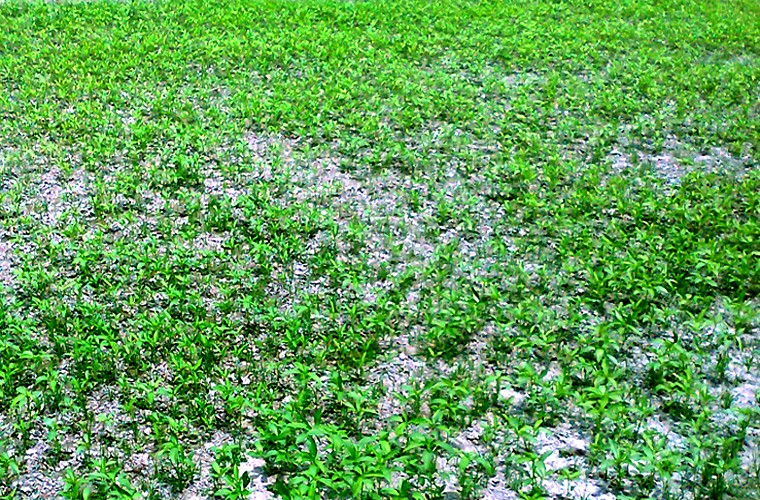News Flash

RANGPUR, April 19, 2025 (BSS) – The Department of Agricultural Extension (DAE) has fixed a target of producing 7,09,799 bales of jute from 54,669 hectares of land for Rangpur agriculture region during the current Kharif-1 season.
"Farmers in the five districts of Rangpur, Gaibandha, Kurigram, Lalmonirhat and Nilphamari in this region are continuing to sow jute seeds," Deputy Director at the DAE’s Rangpur regional office Agriculturist Md. Afzal Hossain said.
Farmers will produce 6,61,085 bales of 'Tosha' variety jute from 49,950 hectares of land, 38,244 bales of 'Deshi' variety from 3,774 hectares, 3,040 bales of ‘Mechta’ variety from 320 hectares and 7.410 bales of Kenaf variety of jute from 650 hectares of land this season under the program.
Farmers will cultivate jute on 9,950 hectares of land in Rangpur, 14,560 hectares in Gaibandha, 17,250 hectares in Kurigram, 3,940 hectares in Lalmonirhat and 6,369 hectares of land in Nilphamari districts this season.
Last season, farmers cultivated jute on 51,822 hectares of land and produced 6,92,116 bales of the fiber crop at an average yield rate of 13.36 bales per hectare.
Farmers have already completed sowing of jute seeds on 21,151 hectares of land till last week in all five districts of the region.
With favorable climate and recent frequent rainfall, tender jute plants are growing superbly and the jute seed sowing process has gained full momentum in the region.
"After receiving high-yielding varieties of jute seeds, fertilizer and other support free of costs from the interim government this season and receiving good prices for jute in recent years, farmers are hoping to cultivate jute on more land this time," said Afzal Hossain.
Since jute was declared a national agricultural product and the use of jute bags was made mandatory in various sectors, farmers have been increasing jute cultivation and production and are receiving a fair price for the environmentally friendly fiber.
The DAE and other related organizations and dealers have been providing farmers with high-quality locally produced and imported jute seeds, in addition to providing the latest technology for expanding jute cultivation.
The DAE is providing necessary training to farmers to separate and decompose jute fibers in case of water scarcity so that they can ensure better quality to get higher prices of the golden fibers.
Afzal Hossain said, "Apart from the good profits from jute cultivation, farmers also benefit from jute farming because after the crop is harvested, its leaves and deep roots, after decomposition, become organic fertilizer that improves soil health and fertility."
Talking to BSS, farmers Mozammel Haque, Golam Mostafa and Ariful Haque of village Najirdigar in Sadar upazila of Rangpur said they have already completed sowing of jute seeds on their crop lands and the tender plants are growing excellent amid favorable climate.